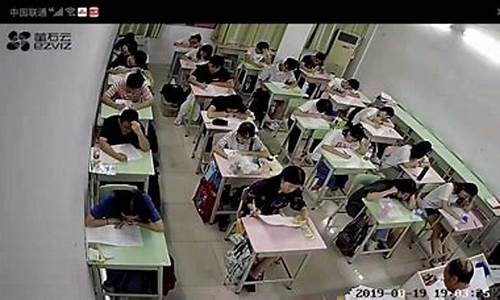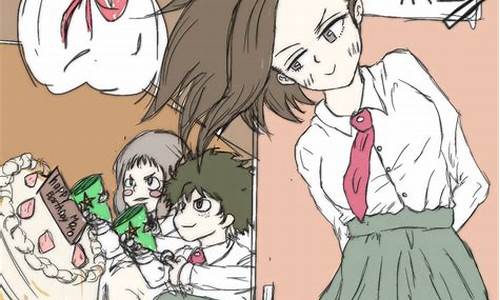高考英语倒装句真题公开课课件-高考英语倒装句真题
1.高考英语语法:高中英语语法-倒装用法归纳之一
2.〓英语〓一道关于省略与倒装的选择题〓小诺求助〓
3.能不能简单的讲讲倒装句的用法(高考英语)
4.高考英语语法:高中英语语法-“倒装”考点透析
5.2012辽宁高考英语满分作文
高考英语语法:高中英语语法-倒装用法归纳之一

《高中英语语法-倒装用法归纳之一》由英语我整理,更多请访问:。本内容整理时间为05月12日,如有任何问题请联系我们。
倒装用法归纳之一
倒装是中学阶段的一个重要的语法知识点,也是高考命题热点之一。下面笔者就来谈谈它的用法。
一、完全倒装
完全倒装是把谓语动词完全置于主语前,其中主语必须是名词,若为代词则不倒装,这种结构中谓语部分无助动词( be ,do ,have )和情态动词,但可以有连系动词 be .须用完全倒装的情况有:
1. 当句首为副词 out ,in ,up ,down ,off ,here ,there 等,且主语为名词时,应用完全倒装。如:
In came the doctor. 医生进来了。
There goes the bell. 铃响了。
2. 当表示地点的介词短语位于句首,且主语为名词时,应用完全倒装。如:
On top of the hill stands a big pine tree.
山顶上耸立着一棵大松树。
Under the tree were some children.
树下有一些孩子。
3. 在 there be 结构中,there 为引导词,be 动词之后为句子的主语,属完全倒装,be 应与主语保持一致。除 be 以外,能与 there 连用的动词还有 seem ,exist ,happen ,appear ,live ,stand 等。如:
There were a lot of people in the park last Sunday.
上周日公园里有很多人。
Once there lived a king who was cruel to his people.
从前有一位对人民很残暴的国王。
4. 作表语的形容词、过去分词等较短,而主语相对比较长,为了保持句子平衡而将表语前置时,句子的主谓也应完全倒装。如:
Typical for China is the crosstalk show, in which two comedians entertain the audiences with words.
中国典型的艺术形式是相声,两名演员用言语来逗乐观众。
Gone are the days when we Chinese were looked down upon.
中国人民被歧视的日子已成为过去。
5. 某些表示祝愿的句子也可用完全倒装(或部分倒装)。如:
Long live the Chinese Communist Party of China!
中国***万岁!
May you succeed!
祝你成功!
二、部分倒装
部分倒装则是将助动词调到主语前,主语可以是名词也可以是代词。通常应使用部分倒装的情况有:
1. 当句首为否定或半否定词 never ,neither ,nor ,little ,seldom ,hardly ,scarcely ,in no way ,few , not ,no 等时,应用部分倒装。如:
Seldom does he spend his time playing cards.
他很少花时间去玩扑克。
Never have I heard of that place before.
我以前从未听说过那个地方。
2. only 修饰时间、地点、方式、原因等状语时,应用部分倒装。如:
Only in this way can we solve the problem.
只有这样,我们才能解决这个问题。
Only when you told me did I know her name.
直到你告诉我,我才知道她的名字。
注意:如果 only 修饰的不是状语,则句子不倒装。如:
Only Uncle Li knows how it happened.
只有李叔叔知道这件事是怎么发生的。
3. 表示对前者的陈述也适用后者时,肯定倒装用? so + 助动词/情态动词 + 后者?,否定倒装用? neither / nor + 助动词 / 情态动词 + 后者?。如:
He can speak English,so can I.
他会说英语,我也会。
If she doesn?t go there tomorrow,neither / nor will I.
如果她明天不去那儿,我也不去。
注意? so + 助动词 / 情态动词 + 主语?与? so + 主语 + 助动词 / 情态动词?的区别:
前者表示所说的主语和前面主语的情况一样,所谈到的是两个人或物,意为?也是这样?;后者所谈为同一人或物,说话者表示同意前者的观点,意为?的确如此?。如:
? Li Lei likes sports. 李雷喜欢运动。
? So he does and so do I. 他的确喜欢,我也是的。
4. so 及? so + 形容词 / 副词?置于句首时,应用部分倒装。如:
So frightened was he that he didn?t dare move.
他如此惊慌以至不敢动弹。
So quietly did she speak that we could not hear a word.
她说话声音这么低,以至我们一个字也没听到。
5. such 及? such + 形容词 + 名词?置于句首时,应用部分倒装。如:
Such is Zhong Cheng, a kind and helpful student.
这就是仲成,一个善良、乐于助人的学生。
Such good players are they that they often win.
他们是好队员,所以他们经常获胜。
6. 由 not only but also 引起的并列句,若将 not only 置于句首时,该分句应部分倒装, but also 引导的分句不倒装。而由 neither nor 引起的并列句,两个分句都倒装。如:
Not only did he give me some advice,but also he lent me some money.
他不但给我提了建议,而且还借给了我一些钱。
Neither does he watch TV,nor does he see films in the evening.
他晚上既不看电视也不看**。
7. 由连接词 No sooner than ,Scarcely when ,Hardly when 引起的主从复合句,主句应倒装,从句不倒装。如:
No sooner had he gone to bed than he fell asleep.
他一上床就睡着了。
Hardly had I got into the classroom when it began to rain.
我刚一进教室天就下起雨来。
8. not until 引起的时间状语置于句首时,句子的主谓应部分倒装。由 not until 引导的时间状语从句位于句首时,主句应部分倒装,从句语序不变。如:
Not until 1998 did he return to his hometown.
直到 1998 年他才回到家乡。
Not until Father came back did we begin to have supper last night.
昨晚直到父亲回来,我们才开始吃晚饭。
注意:当 not until 引导的状语或状语从句用于强调句型时,句子的主语不倒装。如将上两句改为强调句应为:
It was not until 1998 that he returned to his hometown.
It was not until Father came back that we began to have supper last night.
9. 省略 if 的虚拟条件句,可将 were ,had ,should 提至主语前。如:
Were I you,I would go there tomorrow.
要是我是你,我明天就会去那儿。
Had you been there,you would have met the manager himself.
要是你去了那儿,你就会见到经理本人了。
10. 表示时间频率且有肯定意义的词语 often ,every day ,now and again 等置于句首用来强调时,应用部分倒装。如:
Often does he send me e-mails to greet me.
他经常给我发电子信件问候我。
三、主谓不倒装的倒装句
1. as / though 引起让步状语从句,可将表语或状语置于句首,但主谓不颠倒顺序。如:
Tired as / though he is,he is still working. 《高中英语语法-倒装用法归纳之一》由英语我整理,更多请访问: style="font-size: 18px;font-weight: bold;border-left: 4px solid #a10d00;margin: 10px 0px 15px 0px;padding: 10px 0 10px 20px;background: #f1dada;">〓英语〓一道关于省略与倒装的选择题〓小诺求助〓
B.Quiet student as he may be 意思是虽然他可能是个安静的孩子,但课后说起他喜爱的流行歌星时便滔滔不绝.
正确的顺序是he may be a quiet student
具体解释看下
"倒装句"主要指的是谓语语序的倒装,当然也有宾语和表语语序的倒装。倒装句分为两种,部分倒装(将谓语的一部分提到主语之前)和全部倒装(将谓语的全部提到主语之前)。
一、 部分倒装
部分倒装是把be动词、情态动词、助动词放到主语之前。如果句子中没有这些词,要在主语之前加助动词do / does / did等,而把原来的谓语动词变成原形放在主语之后。部分倒装主要有以下几种情况:
1. 句首状语为否定词或半否定词的句子。
这类词或短语主要有never, neither, nor, little, seldom, rarely, hardly, scarcely, no sooner, not only, in no way, at no time, few, not, no等, 如:
Not a word did I say to him.
Never have I found him so happy.
Little does he care about what I said.
I can't swim. Neither can he.
No sooner had he gone to bed than he fell asleep.
巩固练习:
1) Hardly ________ the airport when the plane took off.
A. I had arrived at B. had I arrived C. had I reached D. I had got to
2) —Have you ever seen anything like that before?
—No, ________ anything like that before.
A. I never have seen B. never I have seen C. never have I seen D. I have seen
3) She is not fond of cooking, ________ I.
A. so am B. nor am C. neither D. nor do
2. only + 状语放在句首,要部分倒装。如:
Only by this means is it possible to explain it. (介词短语)
Only then did I realize the importance of math. (副词)
Only when the war was over in 1918 was he able to get happily back to work. (从句)
巩固练习:
4) Only in this way ________ make progress in your English.
A. you B. can you C. you be able to D. will you able to
5) Only when the meeting was over________ go back to meet his friend.
A. he could B. he was able to C. was he able to D. was able to he
3. so或so引导的短语放在句首,要部分倒装。如:
I saw the film, so did she.
So loudly did he speak that even people in the next room could hear him.
巩固练习:
6) I like sports and ________ my brother.
A. so does B. so is C. so can D. so likes
7) The doctor told Charlie to breathe deeply and ________.
A. so did Charlie B. Charlie did so C. Charlie does so D. did Charlie so
8) So loudly ________ that ________ hear her clearly.
A. did she speak; could everyone B. did she speak; everyone could
C. she spoke; could everyone D. she spoke; everyone could
4. "Not only + 分句,but also + 分句"句型中的前一分句要部分倒装。如:
Not only does John love Chinese, he is also good at speaking it.
但not only...but also...连接主语时,不倒装。如:
Not only the mother but also the children are sick.
巩固练习:
9) ________ himself wrong, but his friends were wrong.
A. Not was only he B. Not only he
C. Not only was he D. Not only was
5. Not until放在句首,从句不倒装,主句倒装。如:
Not until last week did they find the lost bike. (简单句)
Not until my son had entered the university did he realize the importance of time. (复合句)
巩固练习:
10) Not until the early years of the 19th century ________ know what heat is.
A. man did B. man C. didn't man D. did man
11) Not until I began to work ________ realize how much time I had wasted.
A. didn't I B. did I C. I didn't D. I
6. as引导的让步状语从句。如:
Proud as these nobles are, he's afraid to see me.
Tired as he was, he kept on running.
巩固练习:
12) ________, he's honest.
A. As he is poor B. Poor is he C. Poor as he is D. Poor as is he
7. 在以often, well, many a time, now and again 等方式或频度副词(短语)开头的句子中,要用部分倒装结构。如:
Many a time has John given me good advice.
Often have we made that test.
巩固练习:
13) Many a time ________ swimming alone.
A. the boy went B. went the boy C. did the boy go D. did go the boy
二、 全部倒装
全部倒装有以下几种情况:
1. There be结构。另外,在此结构中可以用来代替be动词的动词有:exist, seem, happen, appear, live, rise, stand等。如:
There stood a dog before him.
There exist different opinions on this question.
巩固练习:
1) ________ a beautiful palace ________ the foot of the hill.
A. There stand; at B. There stands; under
C. Stands there; under D. There stands; at
2. "Here, There, Now, Then + come (或be等) + 主语" 结构。
说明:本句型中there是副词,应重读,强调地点。而前一句型中的there是引导词,本身没意义。如:
Here comes the old lady!
Then came the hour we had been looking forward to.
There comes the bus.
Now comes your turn.
除了then引导的句子用过去式以外,其余的均用一般现在时,表示一种生动的描述。其次,如果主语是人称代词,就不用倒装。如:
Here you are.
There she comes.
巩固练习:
2) There ________. And here ________.
A. goes the phone; she comes B. is the phone going; is she
C. does the phone go; does she come D. the phone goes; come she
3. 表示方向的副词out, in, up, down等置于句首,要用全部倒装。如:
In came Mr White.
Up went the arrow into the air.
Away went the boy.
巩固练习:
3) Out ________, with a stick in his hand.
A. did he rush B. rushed he C. he rushed D. he did rush
4) ________ from the top of the building when the policeman pointed the gun at him.
A. Jumped down the robber B. Jumped the robber down
C. Down jumped the robber D. Down the robber jumped
4. "分词(代词) + be + 主语"结构。如:
Walking at the head of the line was our teacher.
Such was the story he told me.
巩固练习:
5) ________, a man of achievements, deep thoughts, but with simple habits.
A. Einstein was such B. Such was Einstein
C. Einstein was so D. So was Einstein
6) ________ are the days when teachers were looked down upon.
A. Gone B. Go C. To go D. Going
5. 表示地点的介词短语 (如on the wall, under the tree, in front of the house, in the middle of the room等)放在句首时,要全部倒装。如:
On the top of the hill stands a pine tree.
In front of the classroom is a playground.
巩固练习:
7) Near the church ________ cottage.
A. was such an old B. had a so old
C. was such old a D. is so an old
key: 一、1)—5) CCBBC 6)—10) ABBCD 11)—13) BCC 二、1)—5) DACCB 6)—7) AA
综合练习:
1.___come to our country as today.
A.Foreign guests who have never
B.Never so many foreign guests have
C.Never have so many foreign guests
D.The foreign guests aren't ever
2.___that he could not speak for a long time.
A.So frightened was he B.So frightened he was
C.Was he so frightened D.Frightened was he
3.Many a time ___good advice.
A.gives me his B.he gives me
C.I give him D.does he give me
4.Rarely___so difficult a choice.
A.she could have faced with B.could have she faced with
C.she could have been faced with D.could she have been faced with
5.In a phycial change no new substance is formed,___in the composition of mater.
A.nor does any change take place
B.nor any change takes place
C.not any change takes place
D.either any change take place
6.Only in a few countries___a reasonable standard of living.
A.the whole of the population enjoy
B.the whole of the population enjoys
C.does the whole of the population enjoy
D.has a whole of the population enjoy
7.Seldom___to come over to have a chat with him in those days.
A.have I have time B.did I have time
C.I have time D.I have got time
8."Tomorrow will be Sunday." "___."
A.So it will B.So will it
C.Either it will D.Either will it
9.Little ___that the district was very rich in resources.
A.we suspectected B.we did suspect
C.did we suspect D.do we suspect
10.The teacher is not too happy with the student,and___is his father.
A.not B.neither C.either D.so
11.No sooner had theyreached the station___the train let.
A.until B.when C.then D.than
12.Under no circumstances and at no time ___the first to use nuclear weapon.
A.we are B.we will be C.were we D.shall we be
13.___,he sat up late writing his book.
A.As he was tired B.Tired though he was
C.Tired as was he D.It is bcause he was tired
14.Never before that night___the extent of my own power.
A.had I felt B.I felt C.did I feel D.I had felt
15.Only when you have acquired a good knowledge of English grammar___writer in English correctly.
A.you will B.can you C.you can D.you could
1-5CADDA 6-10 CBACB 11-15DDBAB
能不能简单的讲讲倒装句的用法(高考英语)
倒装句用法
倒装句的意义和分类:英语的基本语序是“主语+谓语”。但有些场合是“谓语+主语”。这种语法现象称为倒装。整个谓语被放在主语的前面,称为完全倒装。例如:
There goes the bell. 铃响了。
Under a big tree sat a boy reading a book.大树下坐着一个男孩在读书。
谓语的一部分(系动词、助动词或情态动词)放在主语的前面,其余的部分仍在主语之后,称为部分倒装。
例如:
Not until 10 o'clock will the library open. 直到十点种图书馆才开门。
倒装的目的:
语法结构的需要:通常疑问句、there be 结构等需要用倒装句。例如:
Was the Communist Party of China founded in 1921? 中国***是1921年成立的吗?
There stants a bridge across the river. 河上有座桥。
Where are you going? 你上哪去?
语法修饰的需要:倒装句可以起强调作用,加强语气。例如:
Still greater contributions should we make to our motherland. 我们应该对祖国作出更大的贡献。(强调宾语)
Such is the case. 情况就是这样。(强调表语)
Now comes your turn. 现在该轮到你了。(强调状语)
Up went the model plane. 那架航模飞机飞起来了。(强调状语)
倒装句结构的基本用法:
全部倒装(平衡倒装句型):
①句首是地点状语和表语时:
In front of the house sat an old man smoking a pipe. 在房屋前面坐着一位老人在抽烟斗。(句首是状语)
On wither side of the street were rows of green trees. 街道两边绿树成行。(句首是表语)
②句首有 here, there, out, in, up, down, off, away 等副词时:
Out rushed a cat from under the table. 从桌子底下窜出一只猫来。
Here is a ticket for you. 这是给你的票。
Up went the prices. 价格上涨。
③句首有 so(表肯定),neither (nor) (表否定),表示前面所说的情况也适合与另一个人或事。
He can swim. 他会游泳。
So can she. 她也会。
He did not watch TV yesterday evening. 他昨晚没看电视。
Neither did I. 我也没看。
④在there be 结构中。
There are fifty students in our class. 我班有50个学生。
⑤在某些祝愿句中。
Long live the People's Republic of China! 中华人民共和国万岁!
⑥在某些感叹句中。
How proud we are of our great motherland! 我们为伟大的祖国感到多么自豪!
部分到装(强调倒装句型)
①用于省去if 的虚拟条件句中
Were there no air or water, there would be no life in the world.如果没有水和空气,世界上就不会有生命。
②用于以as 引导的状语从句中
Rich as they are, they are not happy. 尽管他们富有,但不幸福。
③用于句首是否定意义的副词或连词时。
Seldom have I read a novel so touching as this. 我难得读到如此动人的小说。
Hardly did I think it possible. 我几乎认为这是不可能的。
④用于疑问句。
When did you begin to learn English? 你什么时候开始学英语的?
⑤句首是only 、后边跟状语的句子中
Only in this way can you learn English well. 只有这种方法,你才能学好英语。
⑥直接引语的全部或一部分在句首时。
"Do you think my clothes fit well?" asked the emperor.“你认为我的衣服非常合身吗?”皇帝问道。
"Mr smith" said mary,"May I borrow your pen?" “史密斯先生”玛丽说,“我可以借一下你的钢笔吗?”
⑦某些祝愿的句子(谓语带有情态动词,则为部分倒装)。
May you succeed. 祝您成功。
重难点分析
1.由疑问词或有疑问词修饰的名词作主语的特殊疑问句不倒装。如:
Who is your maths teacher? 谁是你的数学老师?(who 是主语)
Which bicycle is yours? 哪辆自行车是你的?(which 是定语,修饰bicycle )
2.在以 here, there, now, then… 等开头的句子中 here, there 强调地点但不指具体的地点,只用来引起人们的注意,要重读。同样 now, then 强调时间,也并不指具体时间,只引起人们的注意,也要重读。如:
There comes our teacher. 我们的老师来了。
在时态方面要注意,除了以 then 开头的句子用过去时外,其余均用一般现在时。如:
Then came a new problem. 那时出现了新问题。
3.主语是人称代词时不倒装。如: Here we are. 我们到了。(Here are we 错)
Away he went. 他走开了。(Away went he.错)
There he comes. 他来了。(There comes he. 错)
4.为了使句子生动、流畅,常把 in, out, down, up, away, off 等,副词放在句首,采用全部倒装语序,不加助动词( do, does等)句子的动词一般都是不及物的行为动词。如:
In came the manager. 经理来了。 不说 :In did the manager come. 当主语是人称代词时,一般只把副词放在句首,不倒装。例如:
In he came and the lesson began.他进来了,于是开始上课。 不说:In came he and lesson began.
5.only 放在句首,但修饰的不是状语而是主语时,不倒装。如:
Only John is allowed to enter the lab. 只有约翰被允许进入实验室。
Only the boy himself knows what he is going to be. 只有这孩子本人知道他将来的前途。
6.以so 开头的句子。如果只是重复前面一句话的意思,不倒装。如:
It was very cold yesterday.昨天很冷。
So it was.正是这样。
He did a good job. 他干的很出色。
So he did. 确实如此。
7.以 not only 开头的句子要倒装,但but also 后面的句子不倒装。如:
Not only did he speak more correctly, but also he spoke more easily. 不仅他说得更准确,而且他说得也更轻松。
8.以 not until 开头的句子主句要倒装,没有助动词时要加助动词。如:
Not until Mother came back did it stop raining. 直到妈妈回来雨才停。
9.带有否定意义的副词和状语词组放在句首时,句子要倒装,这样的副词常见的有:no sooner…than, hardly…when, not until, never, hardly, seldom, scarecely, little, barely, at no time(=never) 等。在使用时要特别注意以hardly(barely/scarcely)…when 和 no sooner…than 开头的句子。在这种倒装句中,主句倒装从句不倒装。如:
Hardly had he got into the room when the telephone rang. 他一进屋,电话就响了。
10.频度状语如 often, seldom 等,地点状语如in front of, in the middle of 等,位于句首时,句子要倒装,没有助动词时要加助动词。如:
Seldom does it snow here.这里很少下雪。
11.充当表语的单数名词放在句首时,不加任何冠词,也不用复数形式。如:
Child as he is, he knows a lot .虽然他是个孩子,可知道的事挺多。
12.为了强调某一动作或使句子平稳和谐,将表语(形容词、现在分词、过去分词)放在句首并倒装。如:
Late as it was, he still continued learning in a poor light. 虽然天色已晚,他仍继续在微弱的光线下学习。
Late as it was表示让步,是as 的一种用法,意思相当于Though it was late 。
再举一例:
Written on the box is the model of the machine. 箱子上写了机器的型号。
这个句子的正常语序是:The model of the machine is written on the box.
written 是过去分词在句中作表语。注意本句不是被动语态,而是系表结构。
高考英语语法:高中英语语法-“倒装”考点透析
《高中英语语法-“倒装”考点透析》由liuxue86.com我整理。本内容整理时间为05月12日,如有任何问题请联系我们。
?倒装?考点透析
倒装有两种情况:部分倒装(主语和助动词倒置)和全部倒装(主语和谓语完全倒置)。之所以使用倒装,一是为了句子的需要;二是为了语法结构的需要。?
一、为了句子意义的需要。
也就是为了强调句子的某一内容,并使上下文衔接紧密;或为了保持句子平衡。常见有下列情况:?
1.句子谓语是go,come,run等表示位置的动词和be动词,句中又有表示方位的副词(如the re,here,up,down,out,in,away等),为了强调该副词,可将其放于句首,而将谓语动词全部置于主语之前。如:?
Here comes the train to Beijing. 去北京的火车来了。?
There goes the bell. 铃响了。?
Down came the rain. 下雨了。?
但主语是人称代词时,主语仍置于动词之前。如:?
Away he comes. 他来了。?
Here it comes. 它来了。?
2.为了强调句中的状语或表语,为了保持句子平衡或上下文衔接紧密,可将状语或表语置于句首,句中主语和谓语完全倒装。如:?
At the front of the hall sat the headmaster.?
校长坐在大厅的前部。?
In this paragraph can be found an answer.?
在这段里能找到答案。?
3.为了强调only及其所修饰的状语(通常是副词、介词短语或从句),则将它们移到句首,句中的主谓作部分倒装。如:?
Only then did we realize that the man was blind.?
直到那时我们才发现那个人是盲人。?
Only when the war was over in 1918 was he able to get happily back to work.
直到1918年战争结束后,他才得以愉快地重返工作岗位。?
4.将含有否定意义的副词(never,seldom,not,little,hardly等)置于句首以示强调时,句中的主谓作部分倒装。如:?
Seldom in my life have I met so determined a person.
一生中我很少见到如此果断的人。?
5.为了强调?not a+名词?或?not a single+名词?结构,将其置于句首时,句中的主谓作部分倒装。如:?
Not a word did he say at the last meeting.?
在上次会议上他一句话都没说。
6. Hardly?when,no sooner?than,not only?but also引导两个分句时,将前一个分句中的主谓作部分倒装,后一个分句中的主谓语序不变。
如:?
Hardly had he began to speak when his father stopped him.
他刚开口发言就被父亲制止了。?
No sooner had I left my house than it began to rain.?
我刚刚离开家就下雨了。?
但neither/not?nor引导两个分句时,这两个分句中的主谓均要倒装。如:?
Neither do I know her address,nor does he.?
我不知道她的地址,他也不知道。?
Not could the patient eat,nor could he drink.?
那个病人既不能吃,也不能喝。?
7.在?so+形容词?that分句?结构中,如将?so+形容词?置于句首以示强调时,其后的系动词be则要移到主语前面,形成主谓的完全倒装。如:?
So moved was she that she could not say a word.?
她激动得一句话也说不出来。?
在?so+副词?that分句?结构中,如将?so+副词?置于句首以示强调时,其后的主谓作部分倒装。如:?
So loudly did he speak that even the people in the next room could hear him.
他的声音那么大,连隔壁屋子里的人都听得见。?
So fast does light travel that it is difficult for us to imagine its speed.
光速如此之快,我们很难想象。?
二、由于语法结构的需要使用倒装。常见于下列句型:?
1.?So+助动词+主语?是一种常用于对前面所说的情况作简短回答的句型。如:?
I was late and so was she.?
我迟到了,她也迟到了。?
They loveshavingslots of friends,so do those with disabilities.
他们喜欢广交朋友,残疾人也一样。?
2.?Neither/Nor+助动词+主语?是用于对前面所说的否定内容表示同样看法的句型。如:?
She won?t go. Neither/Nor will I.?
她不走,我也不。?
I cannot swim. Neither can he (swim)。?
我不会游泳,他也不会。?
3.当if引导的虚拟条件从句中含有had,were或should等时,如将if省略,则要将had,wer e或should等移到主语前,作部分或完全倒装。?
Had you come yesterday,you would have seen him.
若你昨天来,你就会见到他了。?
4.表示存在的句型?There be+主语?也属于倒装句之列。如:?
There are three chairs,a desk and a computer in the room.
搜狐教育社区 《高中英语语法-“倒装”考点透析》由liuxue86.com我整理
2012辽宁高考英语满分作文
英语书面表达在高考中日益显得重要,高考书面表达已不只局限于把话说清楚,把意思表达完整,而是要给我们的句子润色,让我们的句子靓起来。如何让我们的英语句子靓起来呢?很多人都强调用连词、介词等词汇手段迅速提高语言水平。但这种方法需要一定的积累,也需要一定的基础。而我觉得通过对低级句型的改造,可以迅速达到这一目的。
◆强调句:可以轻松地将时间、地点、原因、方式等类型的状语从句转变为强调句。
It was not until I arrived home that I realized I had left the bag on the shop counter.
It was then that I realized the importance of English.
◆倒装句:只要句中有介词短语或状语从句,便可将其提前,变成倒装句。
Only when I turned right at the crossing did that car crack towards me.
Only by this means can he escape from the big fire.
◆with引导的伴随结构:可以将状语从句或并列句中的其中一个分句变成with结构。
With the sun lighting brightly and the birds singing clearly, I went to school in high spirits
He always likes to sleep with the windows open.
◆巧妙地使用非谓语动词:可以将状语从句或并列的动词简化为非谓语动词。
Hearing that, the driver’s wife quickly added that her husband often talked nonsense after drinking. (低级形式:When he heard that, ……)
◆恰到好处的被动句:适合应用于较简短的句子,这样显得语言简洁生动,宾语一般是nothing、anything、everything等不定代词。
Searched all my pockets, but nothing was found。
◆感叹句:通常用于开头结尾活跃文章气氛,凡是“I feel ……”之类表达感情的句子皆可如此改造。
How terrible I felt today! I failed again in the math exam.
◆高级定语从句:若定语从句中的动词带有介词,只需将介词移至先行词后。
We came to a place to which they had never paid a visit before.
◆进行时态:有时会含有一定情绪,尤其要使用always这样的富含感彩的副词。
I am always feeling terrible when I take a bus.
◆婉转表达:需要使用幽默的技巧,主要用于漫画型作文题。
I could find nothing but bad luck when I returned the shop after learning that my handbag had been left on the counter.
◆what引导的名词性从句:将动宾结构转化为此结构。
What he gave me, which I knew, were not only a Christmas present but also a heart full of love and a mind of my existence in it.
◆“数词+名词”变为“as many as+数词+名词”。
As many as ten years ago, my hometown used to be covered by forests
◆适当加一些不关痛痒的插入语:一些连词、副词可以放到句子中间充当语气较弱的插入语,如I guess、however、in a way、certainly、in my opinion、probably、briefly, generally speaking, believe it or not, besides, what’s more等,有时可以考虑几个插入语连用,就更像英美人士的文章了。
◆独立主格:将主从句去掉连词,前句动词变为分词即可。
The weather being fine, a large number of people went to climb the Western Hills.
◆把简单句改成复合句:适当的时候把两个简单句改成“too….to…”或者“so…that…”等高级一点的复合句。例如:
I was very tired. I couldn’t keep up with them.我们可以改成:I was so tired that I couldn’t keep up with them.或:I was too tired to keep up with them.
这样一来,英语基础不是很好的学生只要能够写出最基本的句子,然后再对这些句子进行加工、改造、润色,慢慢的,就会让句子靓起来,在高考中就可以得到比较满意的成绩。
声明:本站所有文章资源内容,如无特殊说明或标注,均为采集网络资源。如若本站内容侵犯了原著者的合法权益,可联系本站删除。












